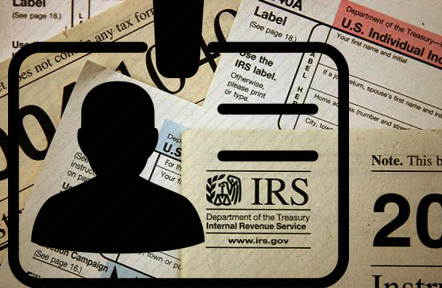Congress Looking to Pass Legislation to Secure the Border and Legalize DACA Recipients; USA Act Viable Solution
 As the March 5th deadline at which point DACA recipients will begin to lose protection from deportation approaches, the topic of immigration reform has risen to the forefront of American politics. Although the President, most members of Congress, and the majority of the American people support Congress passing legislation that will provide DACA recipients with some type of conditional permanent legal status, the exact provisions that legislation should include are a topic of hot debate.
As the March 5th deadline at which point DACA recipients will begin to lose protection from deportation approaches, the topic of immigration reform has risen to the forefront of American politics. Although the President, most members of Congress, and the majority of the American people support Congress passing legislation that will provide DACA recipients with some type of conditional permanent legal status, the exact provisions that legislation should include are a topic of hot debate.
On January 9th, President Trump held a bipartisan meeting of legislators to discuss immigration reform and the legislative replacement for DACA, part of which the press was allowed to record.
During this meeting, the President signaled that he wanted the legislative replacement for DACA to include funding for border security, limit chain migration, cancel the visa lottery, and merit based requirements for legal immigration. However, he also said that he would sign off on any bill the senate can pass with 60 votes in the senate, placing the responsibility on Congress to come up with a solution.
The fact that 60 or more votes in senate are required to pass this law means that the legislation to replace DACA is going to require approval from some Democrats and Republicans in Congress. While certain Democrats in Congress have taken the position that they will only support a “clean” DREAM act or stand-alone legislation that provides legal status for DACA recipients, many Republicans want to include increased funding for border security so that a similar situation does not arise again in the near future.
On Friday January 19th, Democrats in Congress refused to vote on a bill to fund the federal government unless it included a provision to legalize DACA recipients, effectively shutting the federal government down. However, on Monday, January 22nd, they voted to pass a short-term spending bill that will continue to fund the Federal government through February 8th in exchange for good faith that Senate Majority leader Mitch McConnell (R-KY) will bring a bill to the floor of the senate that provides legal status for DACA recipients to be voted on before the next spending bill is passed.
For any legislation protecting DACA recipients to have a chance of getting enough votes from Republican legislators to pass, it will most likely have to at least include a sizable amount of federal money appropriated towards funding increased border enforcement. Many Republican legislators and the President would also like to see an end to the visa lottery and some kind of provision to exchange chain migration for more merit-based forms of immigration, although the more comprehensive the legislation gets, the harder it seems to be for Congress to reach an agreement.
Perhaps the most sensible and bipartisan bill that was recently proposed and is currently being considered is The Uniting and Securing America (USA) Act. Brought to the floor of the House by Representatives Will Hurd (R-TX) and Pete Aguilar (D-CA), The USA Act includes four main provisions to legalize DACA recipients, increase border enforcement, improve the immigration system, and address the factors driving illegal immigration.
Uniting and Securing America (USA) Act
1. Adjustment of status for certain individuals who entered the United States as children
This provision provides a conditional path to permanent legal status for certain individuals who came to the US younger than 18 and have been physically present here since 2013. In order to be eligible for the initial 8-year period of conditional permanent residency the bill provides, recipients must be able to pass a background check with no felony or significant misdemeanor convictions. They also must be either be admitted to an institution of higher education, have earned a high school diploma or GED, or be enrolled in high school or something equivalent. After 8 years of conditional status in which they must continue to reside in the US and maintain good moral and legal standing, the beneficiaries of this bill could apply for lawful permanent residency if they completed one of three tracks to permanent legal status. These tracks require that they either complete either 2 years in a higher institution of education, serve in the Uniformed Services for at least the period for which they were obligated to serve on active duty and, if discharged, received an honorable discharge, or have been employed for periods totaling at least 3 years and at least 80 percent of the time that the alien has had a valid employment authorization. They must also demonstrate an ability to read, write, and speak English, show an understanding of American history, principles and form of government, and pay a fee that covers the cost of the application.
2. Secure miles with all resources and technology
The bill also includes a provision to grant federal money to agencies securing the border, as long as the efforts are done as efficiently as possible. Among several measures to improve security at the southern border are eradicating carrizo cane and salt cedar along the Rio Grande River to increase visibility, mandatory air and marine operation flight hours, and the expansion and modernization of high volume ports of entry. It also authorizes operation Stonegarden, which would appropriate $110 million a year for the fiscal years 2018-2022 to Aid US Customs and border protection and state and local law enforcement entities in protecting and securing the US’ northern and southern borders.
3. Reducing significant delays in immigration court
With over 660,000 cases currently backlogged, the average wait time for an immigration case to be heard is about 670 days. The bill seeks to address this problem to allow the judicial facet of the US’ immigration system to work more efficiently by increasing the number of immigration judges by 55 a year for the fiscal years 2018-2020. The bill also includes a provision to increase the number of board of immigration appeals attorneys by 23 a year for the fiscal years 2018-2020. Resources for hiring necessary support staff for the attorneys and judges are provided for in the bill as well.
4. Advancing reforms in central America to address the factors driving migration
The final provision of the bill provides that the president appoints a senior official “to coordinate the efforts of the Federal Government…and the efforts of international partners to strengthen citizen security, the rule of law, and economic prosperity in Central America and to protect vulnerable populations in the region,” with a special focus on El Salvador, Guatemala and Honduras.








